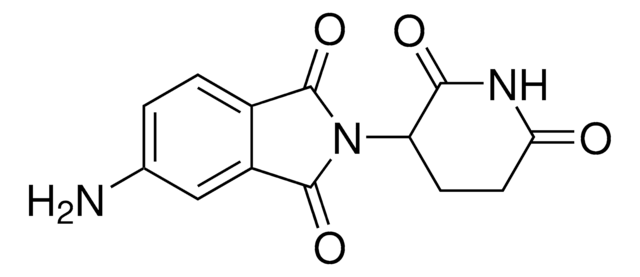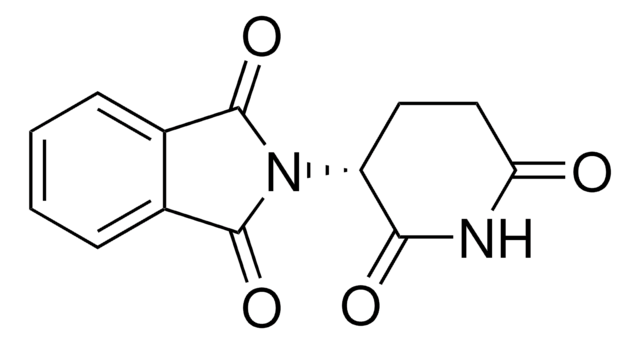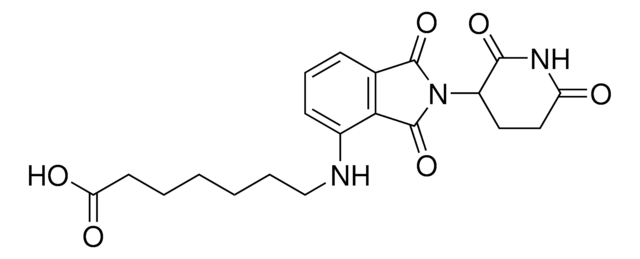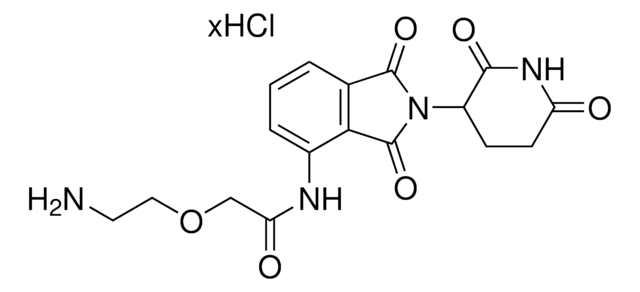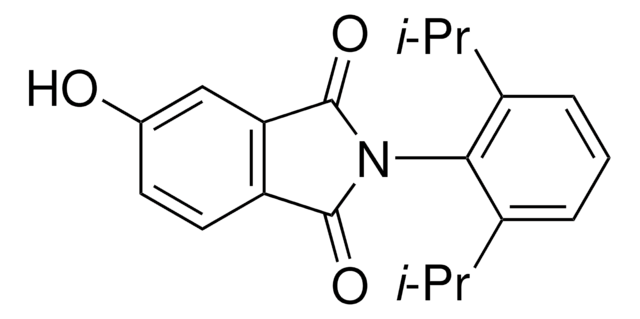P0018
Pomalidomide
≥98% (HPLC), powder, HbF inducer
Synonym(s):
1,3-dioxo-2-(2,6-dioxopiperidin-3-yl)-4-aminoisoindoline, 3-amino-N-(2,6-dioxo-3-piperidyl)phthalamide, 4-Amino-2-(2,6-dioxo-3-piperidinyl)-1H-isoindole-1,3(2H)-dione, Actimid, CC-4047, IMiD 3
About This Item
Recommended Products
product name
Pomalidomide, ≥98% (HPLC)
ligand
pomalidomide
Quality Level
Assay
≥98% (HPLC)
form
powder
reaction suitability
reagent type: ligand
color
yellow
solubility
DMSO: ≥14 mg/mL
storage temp.
2-8°C
SMILES string
Nc1cccc2C(=O)N(C3CCC(=O)NC3=O)C(=O)c12
InChI
1S/C13H11N3O4/c14-7-3-1-2-6-10(7)13(20)16(12(6)19)8-4-5-9(17)15-11(8)18/h1-3,8H,4-5,14H2,(H,15,17,18)
InChI key
UVSMNLNDYGZFPF-UHFFFAOYSA-N
Gene Information
human ... CRBN(51185) , CUL4A(8451) , DDB1(1642) , RBX1(9978)
Related Categories
Application
- to treat BV173 cells to study the role of proteolysis targeting chimera (PROTAC) compound, JQ1-CRBN, in inducing specific class-I major histocompatibility complex (MHC-I) peptides
- for apoptosis studies and intracellular calcium analysis
- as a fetal hemoglobin (HbF) agent to study the additive effect with UNC0638 on the levels of fetal hemoglobin expression in β-thalassemia/ variant hemoglobin E (HbE) erythroid progenitor cells
Biochem/physiol Actions
Features and Benefits
related product
Signal Word
Danger
Hazard Statements
Precautionary Statements
Hazard Classifications
Repr. 1B
Storage Class Code
6.1C - Combustible acute toxic Cat.3 / toxic compounds or compounds which causing chronic effects
WGK
WGK 3
Flash Point(F)
Not applicable
Flash Point(C)
Not applicable
Certificates of Analysis (COA)
Search for Certificates of Analysis (COA) by entering the products Lot/Batch Number. Lot and Batch Numbers can be found on a product’s label following the words ‘Lot’ or ‘Batch’.
Already Own This Product?
Find documentation for the products that you have recently purchased in the Document Library.
Customers Also Viewed
Our team of scientists has experience in all areas of research including Life Science, Material Science, Chemical Synthesis, Chromatography, Analytical and many others.
Contact Technical Service

